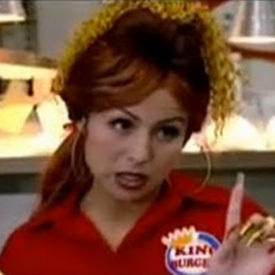WATER RETENTION ISSUE

betojr85
Posts: 10 Member
I've been on a strict die eating 5 times a day and very low sodium. drink a massive amount of water per day but i also go to the bathroom (for number 1) many times too.. and also im working out both weights and cardio, but its been 3 weeks and the weight scale has gone dow ONE fricking pound only and i dont feel like im loosing anything and also im taking a product to get rid of water retention and im going to the bathroom like a said maaany times, but not noticing any change.. please help im going crazy here dont know what else to do!! also im feeling bloated with aaaaaaaanything i eat whether its my egg whites in the morning with my oatmeal, or if i have a coffee.. hope someone can shine some light my way!! thanks.:grumble: :noway: 
 :sad: :yawn:
:sad: :yawn:
0
Replies
-
No stats?0
-
You said you're taking a "product" to rid yourself of water. Has your doctor prescribed a diuretic for you?0
-
We can't see your diary to comment properly on this.0
-
Will only know for sure from your diary. But as for water retention -- do you live in a warm area?
It's going to be a particularly hot August where I am and in hot weather I'm retaining water like a *kitten*.0 -
Why are you drinking massive amounts of water but then taking a diuretic? Do you have a health issue that leads to water retention?0
-
no no health issue but im taking it to help get rid of the retained water0
-
Yeah im in miami and i sweat like crazy but the retention is a constant thing i see it specially when i remove my socks you can see the rings clearly in my ankles0
-
We can't see your diary to comment properly on this.
i havent started again the diary, just starting tomorrow here but i wanted some feedback so i get some knowledge0 -
I don't think you should be taking a diuretic without a doctors say so and if you feel you retain so much water, why not get a checkup?
Can you open your diary?0 -
No its not prescribed its called Hidroclorotiazida from american genericsYou said you're taking a "product" to rid yourself of water. Has your doctor prescribed a diuretic for you?0 -
I will.. i will start it tomorrow.I don't think you should be taking a diuretic without a doctors say so and if you feel you retain so much water, why not get a checkup?
Can you open your diary?0 -
Its difficult to provide feedback with so little info about you.We can't see your diary to comment properly on this.
i havent started again the diary, just starting tomorrow here but i wanted some feedback so i get some knowledge0 -
Ive posted now for a few days, maybe this will help?? thanks so much
Its difficult to provide feedback with so little info about you.We can't see your diary to comment properly on this.
i havent started again the diary, just starting tomorrow here but i wanted some feedback so i get some knowledge0 -
okay,
clearly you have a more serious problem then just some water retention if there is edema in your ankles and u got a diuretic.
i would suggest not drinking so much water, only when you are thirsty, since the point is to get rid of the water weight.
you shouldn't be over hydrated on a diuretic, and make sure you take enough electrolytes, because diuretics tend to wash all of it out.
btw. hydrocholothiazide is a diuretic.0 -
go to settings, then click diary settings, then click "public" and people will be able to give you some helpful advice.
At this point, we don't know what you should be eating/what you are eating calorie wise , if you're getting enough fiber to get rid of solid waste, how much water you're actually drinking, let alone basic things like your weight, height and goals which you'll need to share before people will be able to really help.
Because for example, if you're 10lbs from a healthy weight, that 1lb in 3 weeks might be right on target with what your body can do at this point.
Other things, how do you know you're retaining water weight? Why are you taking a diuretic without being prescribed by a doctor? etc.0 -
okay,
clearly you have a more serious problem then just some water retention if there is edema in your ankles and u got a diuretic.
i would suggest not drinking so much water, only when you are thirsty, since the point is to get rid of the water weight.
you shouldn't be over hydrated on a diuretic, and make sure you take enough electrolytes, because diuretics tend to wash all of it out.
btw. hydrocholothiazide is a diuretic.
Agreed. Firstoff not a medical doctor and this is not medical advice but you just described edema and someone picked up on that. Also you are supplementing with a diuretic it sounds like from Nutrition/supplement store. Likely you are reading the label and drinking adequate fluid and expect the supplement to do what it is supposed to. But without seeing your full stats and diary, there is no which way to go other than " I'm not sure"
Agree with all, inform your Primary of what you are taking, how much and how often and why and listen to what they tell you. Best of luck in your fitness journey LVFT0 -
I just put it public.go to settings, then click diary settings, then click "public" and people will be able to give you some helpful advice.
At this point, we don't know what you should be eating/what you are eating calorie wise , if you're getting enough fiber to get rid of solid waste, how much water you're actually drinking, let alone basic things like your weight, height and goals which you'll need to share before people will be able to really help.
Because for example, if you're 10lbs from a healthy weight, that 1lb in 3 weeks might be right on target with what your body can do at this point.
Other things, how do you know you're retaining water weight? Why are you taking a diuretic without being prescribed by a doctor? etc.0 -
okay,
clearly you have a more serious problem then just some water retention if there is edema in your ankles and u got a diuretic.
i would suggest not drinking so much water, only when you are thirsty, since the point is to get rid of the water weight.
you shouldn't be over hydrated on a diuretic, and make sure you take enough electrolytes, because diuretics tend to wash all of it out.
btw. hydrocholothiazide is a diuretic.
This is seriously bad advice. OP is taking a diuretic without doctor's supervision. Drinking less water could lead to dehydration.
You don't drink less water to relieve water rentention, you drink more. If you're dehydrated, your body will just continue to retain water as it needs water for a multitude of processes.0 -
OP - you said you get bloated with everything you eat. That is not normal. Go see your GP and tell them this. There may be some underlying issues.
I also notice I get bloated and retain water when I have a high sodium intake but I know my threshold. After a high sodium day, I drink 50 oz of water mixed with about 4 oz. of organic 100% cranberry juice. It helps with the bloat.0 -
I would go talk to your Dr. I will say though that I have water retention problems myself at time and I find drinking green tea with no sugar or sweeteners helps me a lot. Don't let the sweeteners fool you. They may have no calories but they still cause water retention. At least for me it does.0
-
okay,
clearly you have a more serious problem then just some water retention if there is edema in your ankles and u got a diuretic.
i would suggest not drinking so much water, only when you are thirsty, since the point is to get rid of the water weight.
you shouldn't be over hydrated on a diuretic, and make sure you take enough electrolytes, because diuretics tend to wash all of it out.
btw. hydrocholothiazide is a diuretic.
This is seriously bad advice. OP is taking a diuretic without doctor's supervision. Drinking less water could lead to dehydration.
You don't drink less water to relieve water rentention, you drink more. If you're dehydrated, your body will just continue to retain water as it needs water for a multitude of processes.
no, this is not bad advice coming from someone who is being professionally trained in the medical field, patients who have edema, due to congestive heart failure, hypertension or kidney problems should not be drinking excess amount of water, because they are already over hydrated. but should still drink enough not to get dehydrated obviously. the fluid that builds up in the body is located in the connective tissue, and cannot be washed out with fluid. a common misconception. it can actually harm a patient to drink more water because it can exacerbate their condition. i said drink when thirsty, not to not drink at all and if i were to get specific a person should drink less then they pee out in a day, so on average a person pees 2 L they should only drink 1L, this is just a example. that is if they have a medical condition requiring them to do so. otherwise if you are healthy drink as much as you want, obviously within a normal limit.
it all depends on what the doctor wants/ what their condition is.
this person needs to see a doctor and get their health in control because what they are doing can be harmful if not supervised :frown:0 -
I used to have similar problems especially with feet and ankles, then I cut down on all carbs, refined sugars, processed foods etc, basically nearly all carbs apart from veggies that grow above ground. Within a week all water retention was gone, quite amazing and no problems since. Not sure if it will work for you, but I read carbs make you retain water.0
-
If you look at my diary, im eatring low low sodium, eating very healthy and excesrcising everyday. but in over a week i actually gained 2 pounds... this is stressful..okay,
clearly you have a more serious problem then just some water retention if there is edema in your ankles and u got a diuretic.
i would suggest not drinking so much water, only when you are thirsty, since the point is to get rid of the water weight.
you shouldn't be over hydrated on a diuretic, and make sure you take enough electrolytes, because diuretics tend to wash all of it out.
btw. hydrocholothiazide is a diuretic.
This is seriously bad advice. OP is taking a diuretic without doctor's supervision. Drinking less water could lead to dehydration.
You don't drink less water to relieve water rentention, you drink more. If you're dehydrated, your body will just continue to retain water as it needs water for a multitude of processes.
no, this is not bad advice coming from someone who is being professionally trained in the medical field, patients who have edema, due to congestive heart failure, hypertension or kidney problems should not be drinking excess amount of water, because they are already over hydrated. but should still drink enough not to get dehydrated obviously. the fluid that builds up in the body is located in the connective tissue, and cannot be washed out with fluid. a common misconception. it can actually harm a patient to drink more water because it can exacerbate their condition. i said drink when thirsty, not to not drink at all and if i were to get specific a person should drink less then they pee out in a day, so on average a person pees 2 L they should only drink 1L, this is just a example. that is if they have a medical condition requiring them to do so. otherwise if you are healthy drink as much as you want, obviously within a normal limit.
it all depends on what the doctor wants/ what their condition is.
this person needs to see a doctor and get their health in control because what they are doing can be harmful if not supervised :frown:0 -
If you look at my diary, im eatring low low sodium, eating very healthy and excesrcising everyday. but in over a week i actually gained 2 pounds... this is stressful..okay,
clearly you have a more serious problem then just some water retention if there is edema in your ankles and u got a diuretic.
i would suggest not drinking so much water, only when you are thirsty, since the point is to get rid of the water weight.
you shouldn't be over hydrated on a diuretic, and make sure you take enough electrolytes, because diuretics tend to wash all of it out.
btw. hydrocholothiazide is a diuretic.
This is seriously bad advice. OP is taking a diuretic without doctor's supervision. Drinking less water could lead to dehydration.
You don't drink less water to relieve water rentention, you drink more. If you're dehydrated, your body will just continue to retain water as it needs water for a multitude of processes.
no, this is not bad advice coming from someone who is being professionally trained in the medical field, patients who have edema, due to congestive heart failure, hypertension or kidney problems should not be drinking excess amount of water, because they are already over hydrated. but should still drink enough not to get dehydrated obviously. the fluid that builds up in the body is located in the connective tissue, and cannot be washed out with fluid. a common misconception. it can actually harm a patient to drink more water because it can exacerbate their condition. i said drink when thirsty, not to not drink at all and if i were to get specific a person should drink less then they pee out in a day, so on average a person pees 2 L they should only drink 1L, this is just a example. that is if they have a medical condition requiring them to do so. otherwise if you are healthy drink as much as you want, obviously within a normal limit.
it all depends on what the doctor wants/ what their condition is.
this person needs to see a doctor and get their health in control because what they are doing can be harmful if not supervised :frown:0 -
If you look at my diary, im eatring low low sodium, eating very healthy and excesrcising everyday. but in over a week i actually gained 2 pounds... this is stressful..okay,
clearly you have a more serious problem then just some water retention if there is edema in your ankles and u got a diuretic.
i would suggest not drinking so much water, only when you are thirsty, since the point is to get rid of the water weight.
you shouldn't be over hydrated on a diuretic, and make sure you take enough electrolytes, because diuretics tend to wash all of it out.
btw. hydrocholothiazide is a diuretic.
This is seriously bad advice. OP is taking a diuretic without doctor's supervision. Drinking less water could lead to dehydration.
You don't drink less water to relieve water rentention, you drink more. If you're dehydrated, your body will just continue to retain water as it needs water for a multitude of processes.
no, this is not bad advice coming from someone who is being professionally trained in the medical field, patients who have edema, due to congestive heart failure, hypertension or kidney problems should not be drinking excess amount of water, because they are already over hydrated. but should still drink enough not to get dehydrated obviously. the fluid that builds up in the body is located in the connective tissue, and cannot be washed out with fluid. a common misconception. it can actually harm a patient to drink more water because it can exacerbate their condition. i said drink when thirsty, not to not drink at all and if i were to get specific a person should drink less then they pee out in a day, so on average a person pees 2 L they should only drink 1L, this is just a example. that is if they have a medical condition requiring them to do so. otherwise if you are healthy drink as much as you want, obviously within a normal limit.
it all depends on what the doctor wants/ what their condition is.
this person needs to see a doctor and get their health in control because what they are doing can be harmful if not supervised :frown:
please go to your primary health doc. i cannot help you through the internet.:frown:0 -
I have congestive heart failure. Everyone assumes that drinking a lot of water is so healthy. It isn't for everyone. I am on restricted liquids. However, even I, since getting my cardiac issues under better control, only take a diuretic if I have a 5 pound gain within a couple of days and then I only take it for a few days. Diuretics can cause kidney failure. If you have edema and you are feeling bloated (sometimes the water settles for me in my abdomen, not my ankles), see your doctor. Anyone on diuretics should be having regular blood work, too. Diuretics can be dangerous and you should not be self-diagnosing or self-medicating. Also, with diuretics you have a much greater need for potassium.
Also, there are other reasons you could be retaining water. Your body needs water to repair muscles from exercising. It help our bodies distribute glycogen. Whenever I up or change my workout, I will notice a plateau that usually lasts a few weeks. Then, bam! I lose a couple of pounds. I assume it is my muscles grabbing the water they need to heal. Weight loss is not a steady, downward road. It flattens out a lot. Especially the closer you get to goal. It is much easier to be losing at a rapid steady pace when you have a 100 pounds to lose than when you have 50 and even more so when you reach 20. We burn less as we weigh less.0 -
okay,
clearly you have a more serious problem then just some water retention if there is edema in your ankles and u got a diuretic.
i would suggest not drinking so much water, only when you are thirsty, since the point is to get rid of the water weight.
you shouldn't be over hydrated on a diuretic, and make sure you take enough electrolytes, because diuretics tend to wash all of it out.
btw. hydrocholothiazide is a diuretic.
Agreed. Firstoff not a medical doctor and this is not medical advice but you just described edema and someone picked up on that. Also you are supplementing with a diuretic it sounds like from Nutrition/supplement store. Likely you are reading the label and drinking adequate fluid and expect the supplement to do what it is supposed to. But without seeing your full stats and diary, there is no which way to go other than " I'm not sure"
Agree with all, inform your Primary of what you are taking, how much and how often and why and listen to what they tell you. Best of luck in your fitness journey LVFT
Nope, that is a prescription medication she's taking. I take it for my blood pressure. OP needs to see a physician and probably admit to what she's been doing. It's dangerous and illegal.0 -
You don't need advice from the internet, you need a doctor's advice. Taking any kind of diuretic can be extremely dangerous. You should NEVER take one without a doctor's advice.0
-
If you look at my diary, im eatring low low sodium, eating very healthy and excesrcising everyday. but in over a week i actually gained 2 pounds... this is stressful..
If I look at your diary for today, you are showing some generic biscuits with 0 sodium... pretty sure this isn't right. Most/all breads and such have some salt in them. Also there seems to be ALOT of salt showing in the Egg whites you ate, which seems wrong...
I don't think you are logging the right information or taking the correct information from the database.0 -
You are young, eating at a deficit and working out hard. Please see your primary care provider asap. Most of us are not medical professionals and you need a checkup/diagnosis in real life.0
This discussion has been closed.
Categories
- All Categories
- 1.4M Health, Wellness and Goals
- 398.2K Introduce Yourself
- 44.7K Getting Started
- 261K Health and Weight Loss
- 176.4K Food and Nutrition
- 47.7K Recipes
- 233K Fitness and Exercise
- 462 Sleep, Mindfulness and Overall Wellness
- 6.5K Goal: Maintaining Weight
- 8.7K Goal: Gaining Weight and Body Building
- 153.5K Motivation and Support
- 8.4K Challenges
- 1.4K Debate Club
- 96.5K Chit-Chat
- 2.6K Fun and Games
- 4.8K MyFitnessPal Information
- 12 News and Announcements
- 21 MyFitnessPal Academy
- 1.6K Feature Suggestions and Ideas
- 3.2K MyFitnessPal Tech Support Questions
















